My wife recently had a conversation with a friend, about how we don’t send our kids to “Children’s Church.” This is a new practice for us, only within the past year or two. After the conversation, he reached out and asked for any resources I had on the subject. Little did he know that this question would open the firehose of all my favorite books on:
- Family integrated worship at church
- Family worship at home
- Family discipleship more in general
I also included my favorite:
- Children’s books
- Children’s Bibles
- Music
- Podcasts on the subject of discipleship & family life
Finally, I gave a rough outline of our ~daily/weekly routines.
As I shared with him, I tend to ingest a lot of content from books, podcasts, conversations, etc and then coalesce ideas in my mind. As a result, it’s difficult for me to point to exactly where I got an idea from. This post is my first step in attempting to cite my sources. Some day I’ll re-read the books that have helped me on this journey. And that time around, I’ll be taking notes.
Many of these resources I’ve read. Others I’ve perused and they are sitting on my bookshelf, waiting to be picked back up. Some I call out below with strong praise. For the others, assume that I’ve only skimmed them, or that it’s been so long that I cannot give an honest review.
Our family is a work in progress, as is everyone’s. By God’s grace, I’d say we’re in a better place today than we were 5 years ago in regards to the discipleship of our children. I know we still have far to go though. Our methods have changed with time—in different seasons, or with newfound resources—but the goal remains the same. Deuteronomy 6:4-7
Family Integrated Worship (Children in Church)
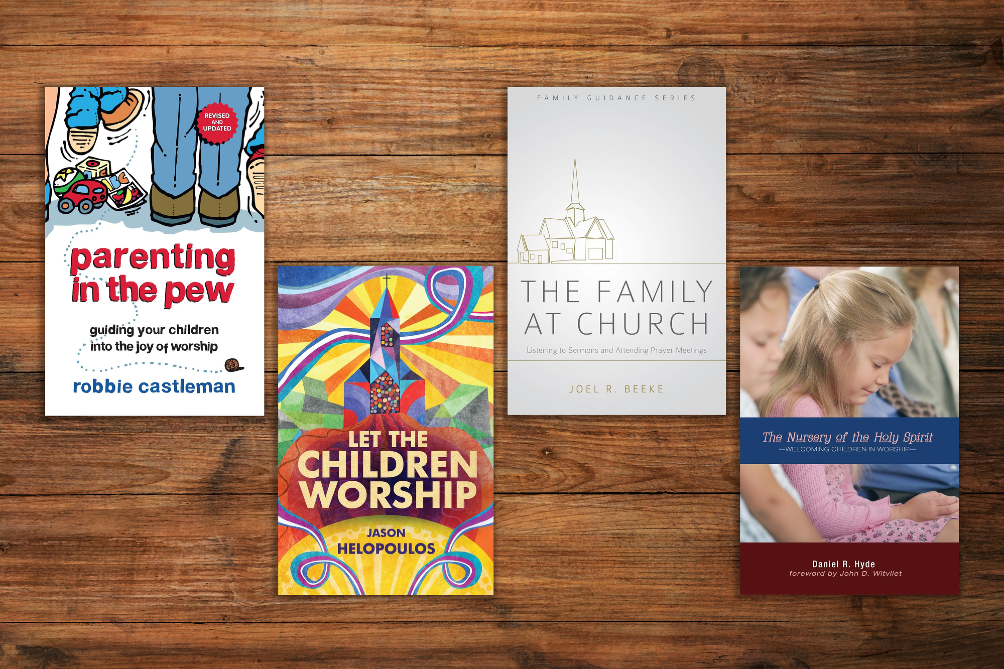
- Parenting in the Pew, by Robbie F. Castleman (Buy)
- Let the Children Worship, by Jason Helopoulos (Buy)
- The Family At Church, by Joel R. Beeke (Buy)
- The Nursery of the Holy Spirit, by Daniel R. Hyde (Buy)
Of these, I believe I’ve read the first two, but it was mid-2022 when I did so I can’t give a thorough review.
Some have argued that kids need children’s church so that they can hear teaching on their own level. This is a modern idea, and very much in line with handing off our children’s education to “professionals” via public schools. I would argue that it’s more important that they learn to worship as the Church from their parents (Deuteronomy 6:7, Deuteronomy 11:18-19, Ephesians 6:4), and that one of the ways that is done, is alongside us during the worship.
We ask our older kids to try to take notes. This can be simple (pictures describing what they hear), questions, actual notes, etc. It’s a training process. We also try to follow up lunch with “Ice Cream Sunday” (an idea we borrowed from Cole Newton) where we discuss the sermon over ice cream. This allows us to dig into any questions they have, and also associates the discussion of God’s word with happy thoughts.
While, over time our hope is that they will grasp more and more of the teaching on Sunday, that’s not our ultimate goal at this stage of life. The goal is to train them to be still and listen, and to build a love for the church gathering as it is, not for the kiddie version of it. As you’ll see below, there are many child-level resources we use throughout the week.
Family Worship At Home
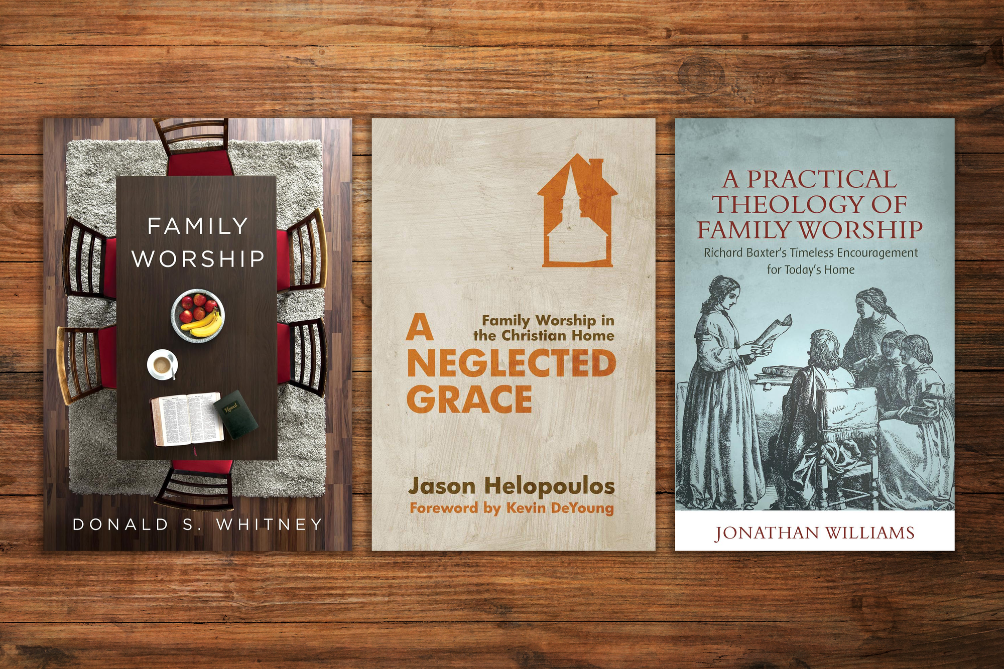
- Family Worship, by Donald S. Whitney (Buy)
- A Neglected Grace, by Jason Helopoulos (Buy)
- A Practical Theology of Family Worship, by Jonathan Williams (Buy)
Of these, I’ve only listened to the audiobook of the first, and it’s been a few years so I do not recall the details. It is exceptionally short though.
Our daily practice changes with the seasons, but we try to start & end the day with reading that points us to Christ (a passage from the Bible, The Biggest Story Bible Storybook, Journey to Bethlehem during Christmas, etc). We also sing hymns together before bed.
We’ve recently tried to incorporate memory versions & catechism questions from Truth and Grace Memory Books into the kids’ homeschool curriculum, which we plan to learn as a family and recite to each other at the end of the week.
Family Discipleship More Broadly
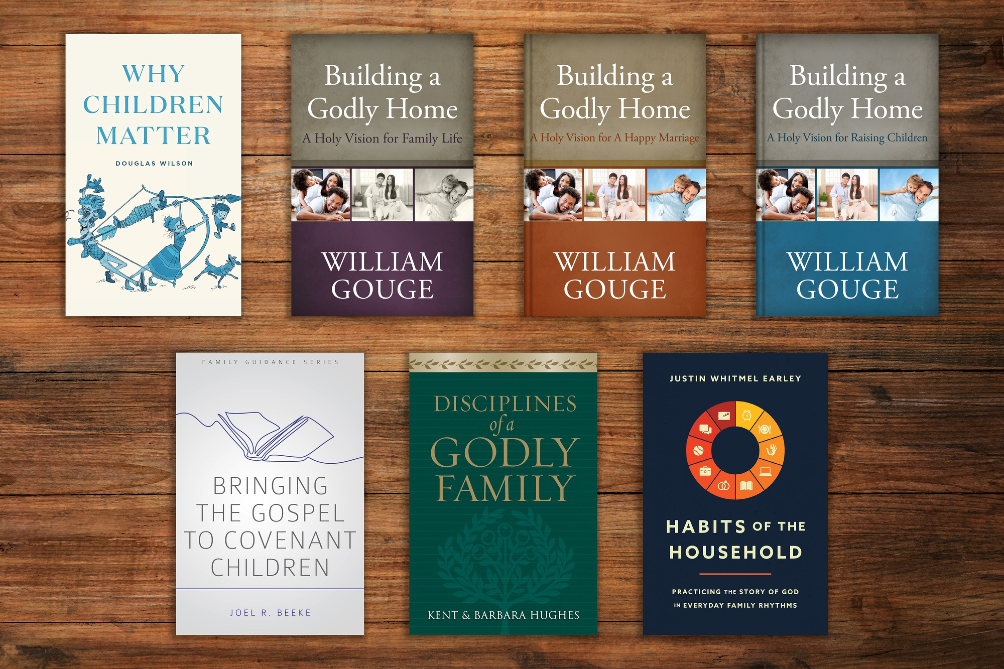
- Why Children Matter, by Douglas Wilson (Buy)
- Building a Godly Home, by William Gouge, updated by Scott Brown and Joel R. Beeke
- Bringing the Gospel to Covenant Children, by Joel R Beeke (Buy)
- Habits of the Household, by Justin Whitmel Earley (Buy)
- Disciplines of a Godly Family, by R. Kent Hughes (Buy)
Of these, I’ve only read Why Children Matter.
I’m really interested in reading Building a Godly Home, but haven’t found the time to sit down and get through it. It is a modernized version of William Gouge’s ‘Of Domestical Duties’. William Gouge was a pastor, and father of 13 who lived from 1575–1653. My understanding is that the only changes made in Building a Godly Home is splitting the original into 3 volumes, and updating the language.
Children’s Books / Storybook Bibles
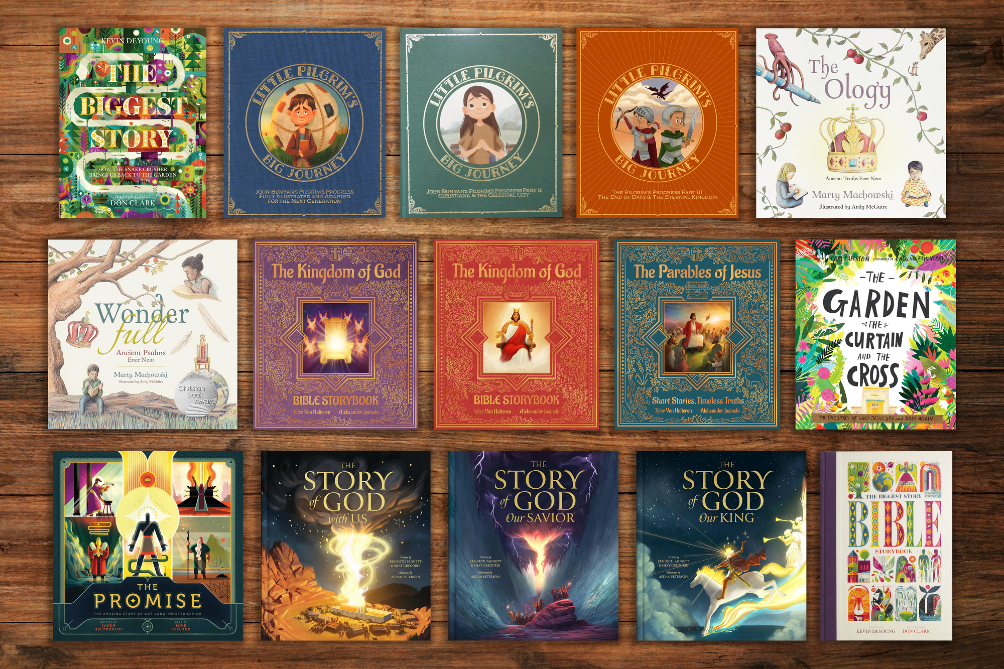
- The Biggest Story, by Kevin DeYoung (Buy)
- Little Pilgrim’s Big Journey, by Tyler Van Halteren (Buy)
- The Ology: Ancient Truths, Ever New, by Marty Machowski (Buy)
- WonderFull: Ancient Psalms Ever New, by Marty Machowski (Buy)
- The Kingdom of God Bible Storybook, by Tyler Van Halteren (Buy)
- The Parables of Jesus, by Tyler Van Halteren (Buy)
- The Garden, the Curtain and the Cross, by Carl Laferton (Buy)
- The Promise, by Jason Helopoulos (Buy)
- The Story of God series, by Kenneth Padgett & Shay Gregorie
- The Biggest Story Bible Storybook, by Kevin DeYoung (Buy)
This is a list of books we’ve used over time in our nightly reading. As I started reading and thinking more about family discipleship, I began to care more about what books we set before our kids. I’ve started to purge our family library of shallow books that give hits of dopamine with no nourishment to the soul, and instead set before our children a feast of delicious, yet nourishing books that will whet their appetites for the good, the true, and the beautiful.
That’s not to say that every book we own is focused on Bible & Theology, but I do want to teach our children to feast well, and to have a high standard for what they feed into their minds & hearts (Luke 6:45, Galatians 6:7-8). As Cole Newton has said:
A truth is here that we must see. Entertainment does not simply distract us; it attracts us to something. It does not merely divert our attention away; it fixes it upon something. Our attention will be given to something, and we must take great care where we look, for we look at and walk toward what we love. There is a war being waged for our eyes because our feet follow our sight.
We must, therefore, diligently set our attention upon Christ.
…
The greatest tools in the enemy’s toolbelt are not overt assaults but lullabies and seemingly harmless distractions.
…
Amuse (a-muse) means not musing or thinking. As Wiktionary notes, it derives from an Old French word meaning “to stupefy” or “to waste time.” Likewise, to distract means “to divert the attention of.”
The books above are roughly in the order we introduced them to our library.
The Biggest Story was probably the first book I purchased after starting to rethink how we use books to shape the heart & mind. For a long time, it was my favorite children’s book, and gives a great overview of the Bible, in an engaging, easy to understand format. It’s divided into chapters and we would often read a single chapter each night and discuss, but is short enough that we’ve also at times read it through in a single sitting.
Our kids were huge fans of Little Pilgrim’s Big Journey, and if it were up to them, we would never have moved on to anything else. We’ve read through them so much that at least one has lost its cover. The Kingdom of God Bible Storybook is from the same author.
My most recent favorites are books in the “Story of God” series, and the kids are big fans as well. Each book follows a “thread”, or theme through the Bible and showcases how God is with us, is Savior, and is King.
Another favorite of ours is The Promise, which goes through images of Christ in the Old Testament (Adam, Isaac, Moses, David, etc) and how none of them were perfect, and therefore could not be the Christ, and how all are fulfilled in Jesus. A wonderful song to pair with this book is Christ the True and Better.
Catechisms
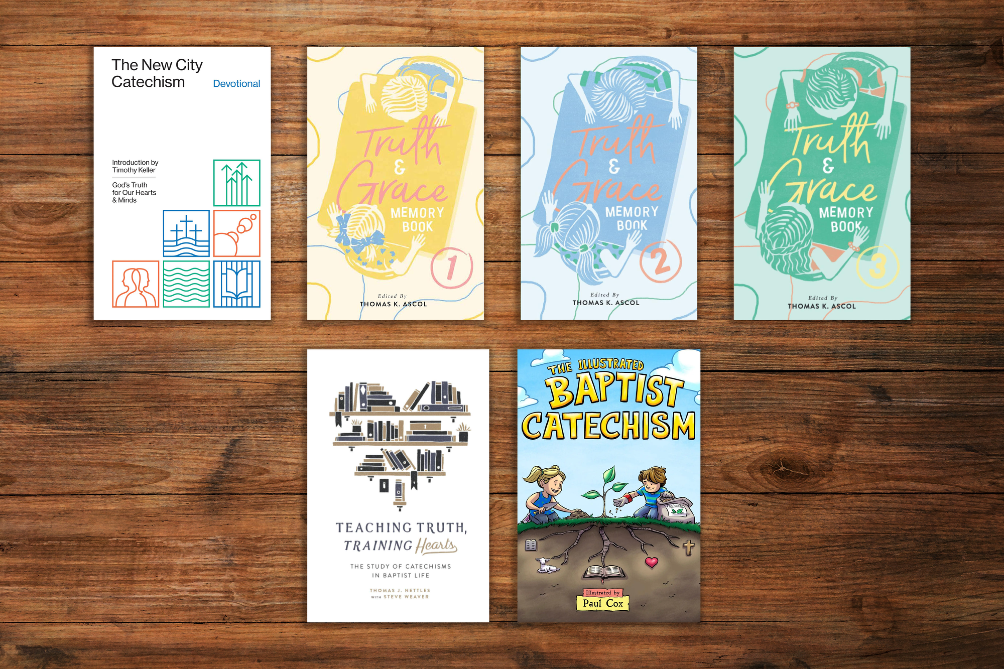
- The New City Catechism Devotional, by Collin Hansen (Buy)
- Truth and Grace Memory Books, by Thomas Ascol (Buy)
- Teaching Truth Training Hearts, by Thomas Nettles (Buy)
- The Illustrated Baptist Catechism, by Paul Cox (Buy)
Catechesis is an ancient practice in Christian discipleship that has been abandoned in many evangelical circles today. The catechizer asks a series of questions, and for each question, the catechumen replies with a response from memory. This is an effective way of hiding truth from God’s word in your heart. It cannot replace scripture memorization, but does help combine theology from the entirety of scripture into a set of concise questions & answers.
For several years we used The New City Catechism, which has longer & shorter versions of each question, as well as songs that can help children memorize them. My wife often used these during homeschool time.
Recently, I’ve started to incorporate the Truth and Grace Memory Books in our nightly routine.
Hymnals
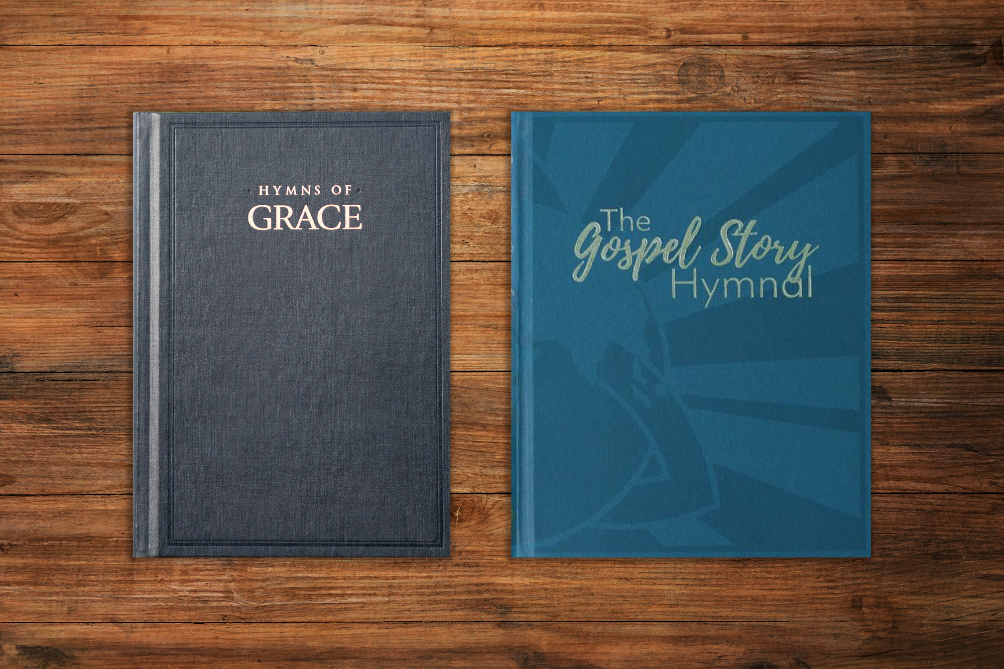
- Hymns of Grace, by Philip Webb (Buy)
- The Gospel Story Hymnal, by Britta K. Wallbaum & Lindsey E. Goetz (Buy)
As part of family worship, we try to sing 1-3 songs that we sing as a church on Sundays. Several of these songs can be found in the Hymns of Grace hymnal. Though we don’t use hymnals on Sunday mornings, I purchased a couple of copies to give our children something to read the lyrics off of. I was shocked at how much they enjoy it. It just shows that the idea of something being old and out of date only applies to those who are old enough to remember it as the “old way” of doing things. Children make the old new again.
Recently our pastor’s wife discovered The Gospel Story Hymnal for kids, and since she knows we are of a similar mind in the discipleship of our children, shared it with me. I debated whether or not to get it. Since our children were already excited about singing out of a traditional hymnal, I didn’t want to cripple them with the allure of bright colors and pictures. Too often today Christians think they cannot worship without guitars, lights, and fog machines (this was me as well from middle school until my late 20s, early 30s) which calls into question what the object of our worship is. I did eventually purchase this, but we gravitate more towards Hymns of Grace, or songs we know by heart.
Music
Apart from formal times of discipleship, we listen to a lot of music. There is no Disney in our home, nor are there the latest pop songs. We want to be just as intentional with the music we listen to as with the books we read. There is nothing that shapes the heart more than story and song. The secular world seems to know this, but sadly many Christians have not caught on.
- Western Meadows Song List
- The Greatest Story Ever Told: The Bible
- Songs by Brian Sauvé
- Sing Psalms, Let Joy Resound
- Even Dragons Shall Him Praise
- The Voyage of St. Brendan
- Our boys love this song, as well as Old Neptune, He’s Roaring from Hearth Songs.
- Hearth Songs
- “An EP of seven original songs dedicated to demonstrating the glory and beauty of ordinary Christian life.”
- Songs Worth Singing
- Bright, the Rider
- Psalm 37: He Fades Away
- From the Realms of Endless Days
- Christmas
- The Word Became Flesh, narrated by R.C. Sproul
- The New City Catechism
- The Baptist Catechism
- Classical Music (Beethoven, Bach, Chopin, Mozart)
- Classical Conversations Songs (part of our homeschool curriculum)
Podcasts
- Bright Hearth - I have not listened to this one in a while, but it has been my favorite podcast on family life. It is hosted by pastor Brian Sauvé (several of his songs are listed above) and his wife Lexy.
- The Theology Pugcast - Great podcast for those interested in Christian history & philosophy. Hosted by pastor C.R. Wiley, historian Glenn Sunshine, and professor of Theology & Christian Ethics Thomas Price. Can be a bit heady at times, but overall I find it to be a great listen.
- The Consortium Podcast - Podcast on Classical Christian Education by Kepler Education. Often when I find a podcast that I like, I will go back to the beginning and listen in the order that they were released. I did that with this podcast, picking episodes that sounded interesting to me. I found the format of many of the episodes in 2021 to be quite appealing (the episodes with Scott Postma and Joffre Swait discussing classical education). In November 2021, this podcast pivoted to a new format (based primarily on conference talks) which I've found to be hit or miss. Some episodes have been great, others less so.
- The Everlasting Education - By the same people as The Consortium Podcast, and with the original format 0f that podcast when it pivoted in November 2021. Sadly it is not being produced anymore, but many of the older episodes are worth a listen.
- ClassicalU Podcast - I just discovered this podcast recently, and have not had time to develop an opinion of it, but it is produced by the folks at Classical Academic Press, and I've been a big fan of several of their books.

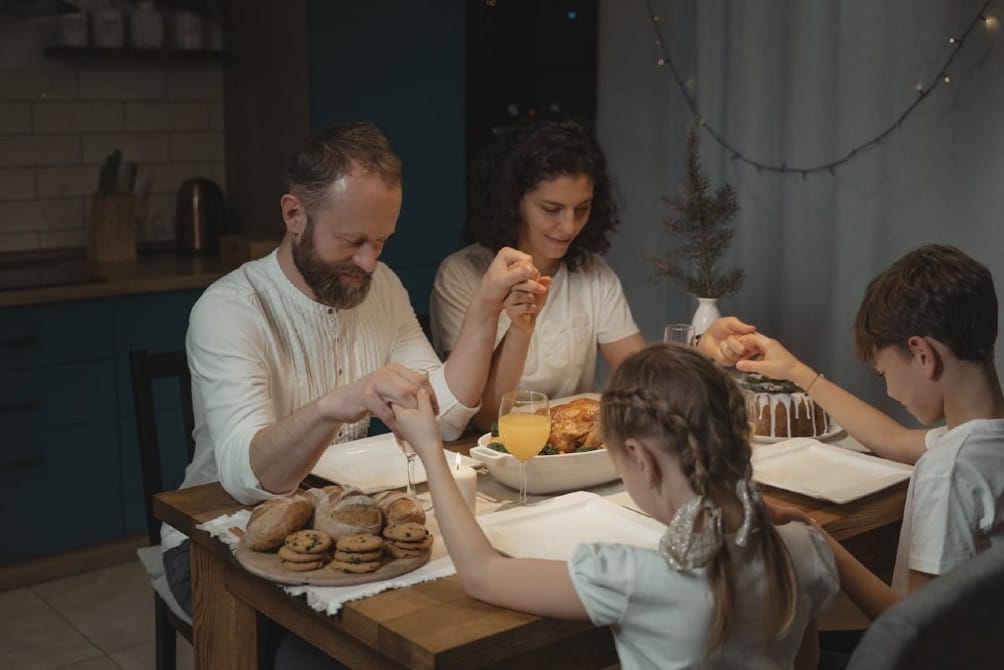
Member discussion